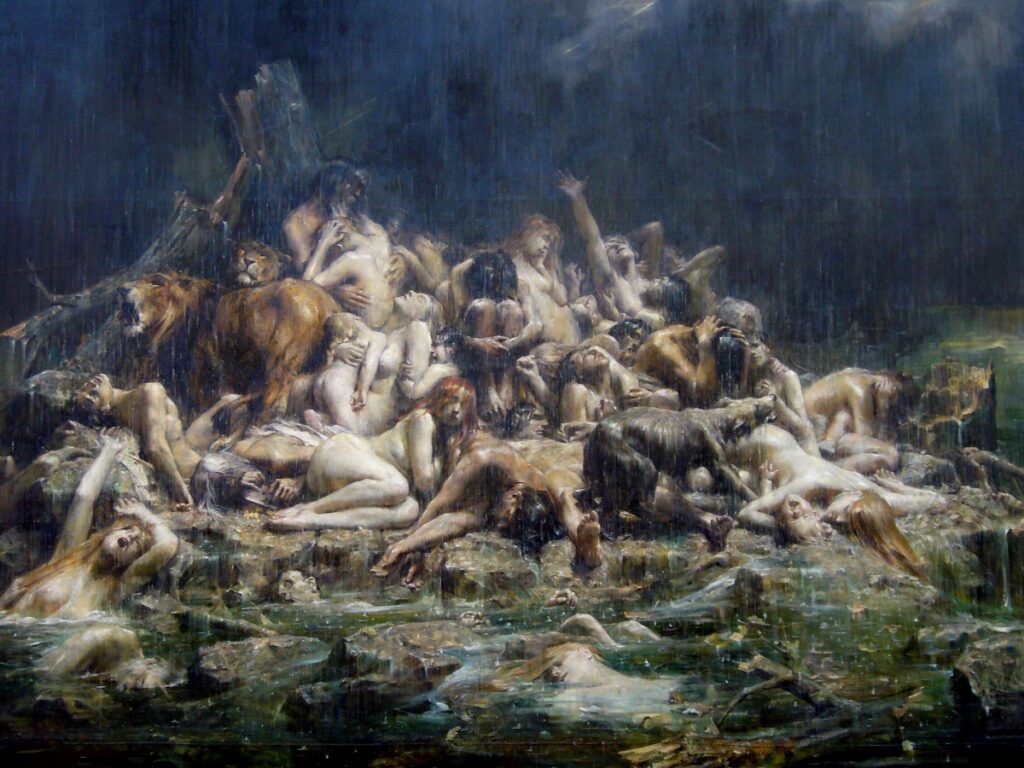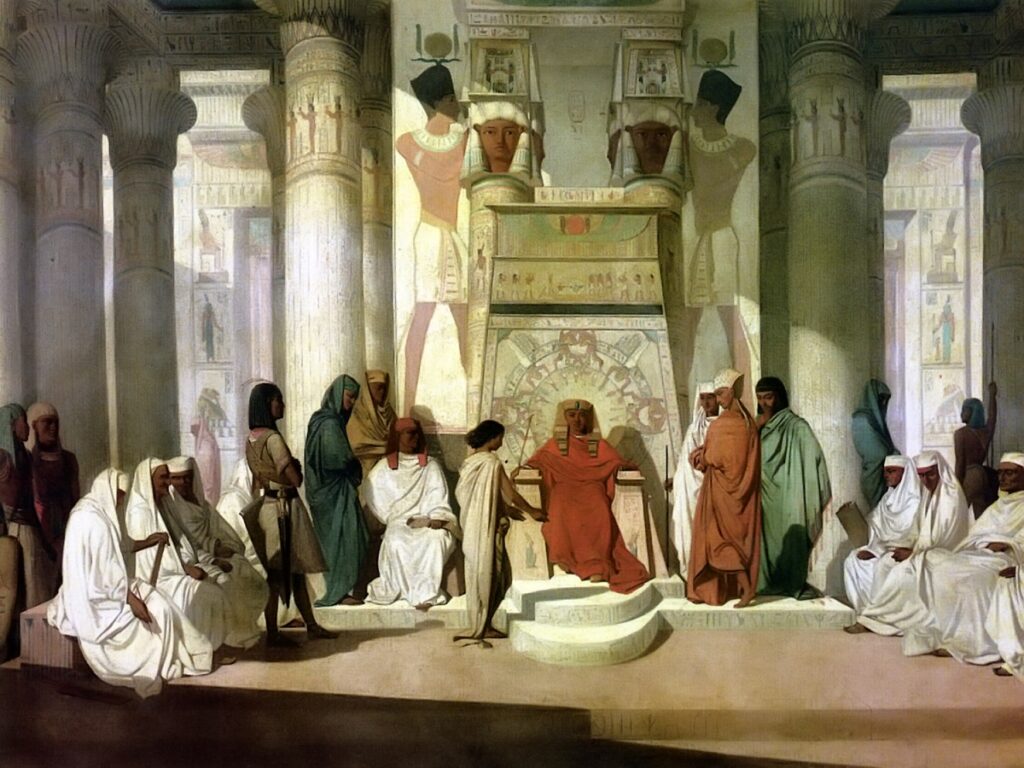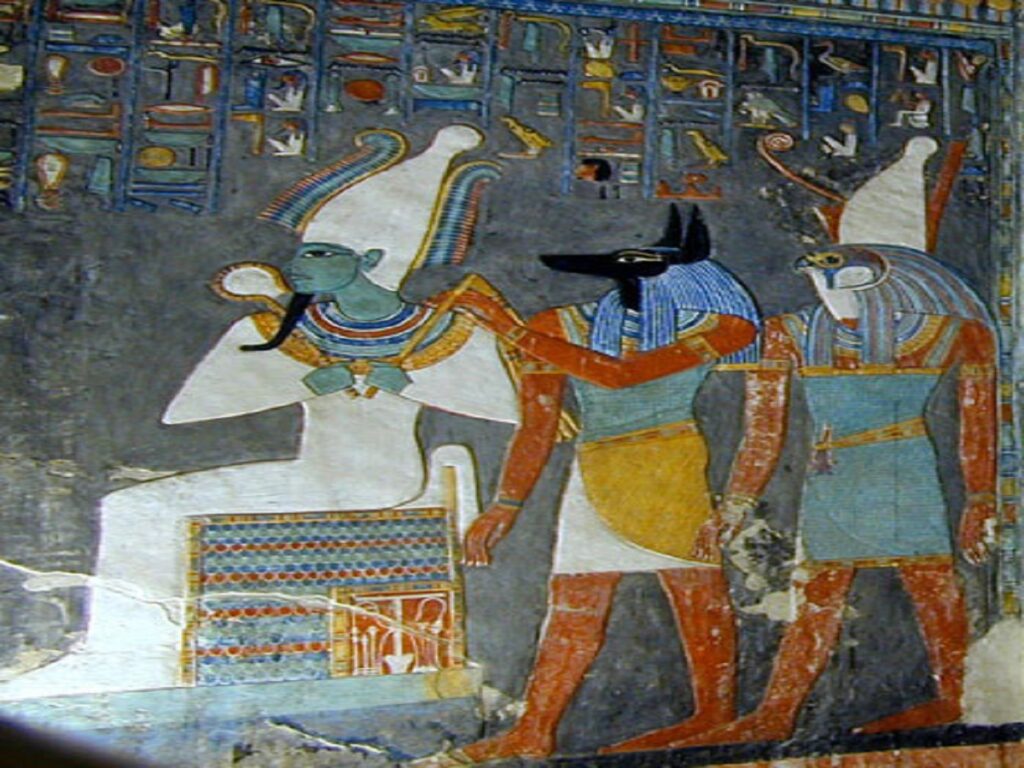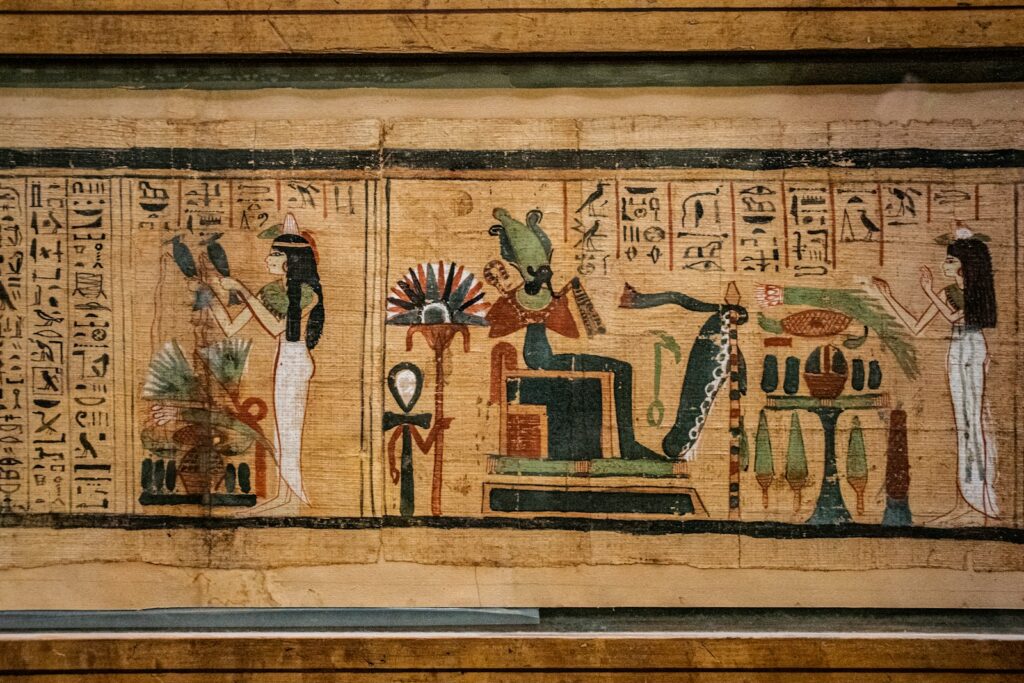The Bible has long been a source of spiritual guidance, historical insight, and literary fascination. Scholars have explored countless influences that may have shaped its stories, and one intriguing angle is the connection between Biblical narratives and ancient Egyptian myths. Egypt’s rich mythology, with gods, creation stories, and moral tales, often intersects in subtle ways with Biblical texts. From shared motifs to similar events, the possibility of Egyptian myths underlying parts of the Bible is a compelling topic for historians, theologians, and curious readers alike.
Creation Stories: A Shared Cosmic Vision
The Biblical creation story in Genesis has striking parallels with Egyptian creation myths. For instance, the concept of a primordial watery chaos called “Nun” in Egyptian mythology mirrors the formless void described in Genesis 1:2. Both traditions explore the emergence of order from chaos, highlighting divine intervention as the source of life. While Egypt’s version involves gods like Atum or Ra forming the world, the Bible presents a singular God orchestrating creation. These similarities suggest shared cultural ideas circulating in the ancient Near East, hinting at possible cross-cultural influences.
Flood Narratives: Echoes Across Cultures

The story of Noah’s Ark and the great flood in Genesis may have Egyptian mythic echoes. Egyptian texts reference a primordial inundation, sometimes described as an overwhelming chaos that the gods mitigate to sustain life. While the Biblical narrative emphasizes God’s judgment and salvation of the righteous, Egyptian myths often focus on cosmic balance and rebirth after the waters recede. Scholars suggest that widespread flood traditions across the Near East, including Egyptian, could have inspired or shaped the Biblical account, reflecting a regional understanding of water as both destructive and restorative.
Joseph in Egypt: Historical or Literary Echo?

The tale of Joseph in Genesis, who rises to power in Egypt, contains elements reminiscent of Egyptian myth and royal symbolism. Egyptian narratives often feature favored individuals rising from humble beginnings through divine favor or wisdom, mirroring Joseph’s story of interpreting dreams and gaining authority. Additionally, the Egyptian fascination with dreams as messages from gods aligns with Joseph’s prophetic abilities. While Joseph is a central Biblical figure, the surrounding motifs may draw subtly from Egyptian storytelling traditions, blending history, theology, and literary artistry.
Wisdom Literature: Egyptian Proverbs and Biblical Sayings
Egyptian wisdom texts, such as the “Instruction of Ptahhotep,” bear resemblance to Biblical proverbs in both style and moral teachings. Themes like honesty, humility, and respect for authority recur in both traditions. For instance, advice on avoiding arrogance and valuing prudence echoes through Proverbs and Egyptian instructions alike. While the Bible frames moral guidance as divinely inspired, Egyptian texts present it as practical wisdom for social harmony. These parallel teachings suggest that the Biblical writers could have been aware of or influenced by established Egyptian literary conventions.
The Exodus Debate: Myth, History, or Both?
The story of the Exodus, where Moses leads the Israelites out of Egypt, has sparked debates about historical accuracy and possible mythological overlaps. Certain Egyptian myths involve divine plagues, conflict between mortals and gods, or sudden departures of people or forces. While no definitive archaeological evidence confirms the Biblical Exodus, similarities in themes of liberation, divine judgment, and miraculous interventions raise the possibility that Egyptian narratives influenced how the story was told. This intersection of myth and memory highlights the complex blending of culture and history.
God and Pharaoh: Power and Divine Authority
The interactions between God and Pharaoh in the plagues story reflect Egyptian concepts of divine kingship. Pharaoh was considered a god-king, a living deity whose authority was absolute. The Biblical narrative portrays God as superior, demonstrating power over both the natural world and human rulers. This confrontation may intentionally echo Egyptian ideology to show the supremacy of Israel’s God. By framing divine authority against a familiar cultural backdrop, the Biblical authors could have been engaging readers with shared understanding while asserting theological distinctiveness.
Symbolism of Animals: Shared Meanings
Animals play prominent roles in both Egyptian myths and Biblical narratives. For example, the sacred animals of Egypt, such as cats, crocodiles, and bulls, carried symbolic weight tied to gods and cosmic forces. Similarly, the Bible uses animals metaphorically, from serpents representing evil to lambs symbolizing innocence and sacrifice. Certain plagues, like frogs or locusts, may echo Egyptian religious symbolism associated with fertility, chaos, or divine retribution. These overlaps suggest that the Biblical authors could have incorporated culturally resonant animal imagery to convey theological messages effectively.
Concepts of Afterlife and Resurrection

Egyptians placed immense emphasis on the afterlife, with elaborate burial rituals and beliefs in resurrection and judgment. While the Bible presents a different theology, some concepts, such as life after death, resurrection, and divine reward or punishment, reflect intriguing parallels. Stories of Egyptian gods like Osiris, who experiences death and rebirth, share thematic resonance with Biblical notions of redemption and eternal life. These parallels do not indicate direct copying but reveal a shared fascination with mortality, morality, and divine oversight in both cultures.
Magical Practices and Prophecy
Magic and prophecy were central in Egyptian culture, influencing daily life, governance, and religion. The Bible contains episodes of miracles, divination, and prophetic warnings, which may reflect awareness of Egyptian practices. For example, Pharaoh’s magicians in Exodus could represent familiar Egyptian magical traditions, serving as a narrative foil to divine power. Prophetic visions, dream interpretations, and ritualistic acts in the Bible may have drawn stylistic or conceptual inspiration from Egyptian approaches to understanding and influencing the spiritual world.
Cultural Transmission: Influence Beyond Borders

The potential presence of Egyptian myths in the Bible highlights the broader phenomenon of cultural transmission in the ancient world. Egypt’s longstanding civilization exerted significant influence across the Near East, and trade, conquest, and migration facilitated the exchange of ideas, stories, and religious motifs. Biblical writers, consciously or unconsciously, may have absorbed elements of Egyptian mythology and reframed them within their monotheistic worldview. Recognizing these intersections enriches our understanding of the Bible, not as a simple historical text, but as a document shaped by a dynamic interplay of cultures and ideas.
Comments